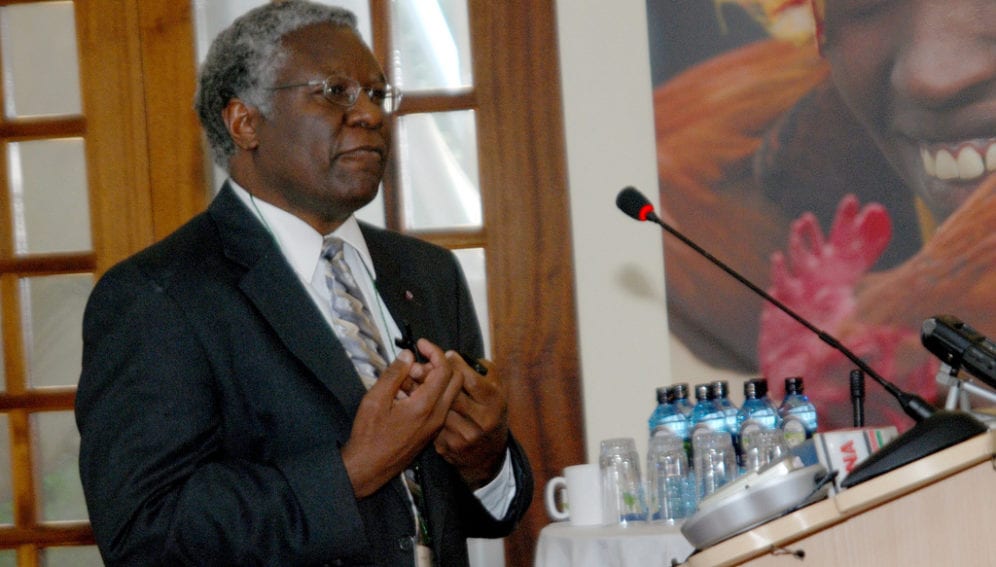By: Dann Okoth
Send to a friend
The details you provide on this page will not be used to send unsolicited email, and will not be sold to a 3rd party. See privacy policy.
[NAIROBI] Developing countries missed out on a chance to use novel 20th century development ideas to move their economies forward, says a distinguished African scholar.
Calestous Juma, a professor of the practice of international development at the US-based Harvard University’s Belfer Center for Science and International Affairs, says “pessimistic” architects of early international development and institutions prevented developing countries from nurturing their ideas.
In a paper published in the spring 2014 edition of the new journal, Policy and Complex Systems, Juma urges developing countries and development agencies to re-think and re-model their economic strategies with the rejected ideas of the 1950s.
Juma’s paper is based on the impact of the late Joseph Schumpeter, a highly ranked Harvard scholar and economist. Schumpeter’s 1911 book, The Theory of Economic Development, spurred the 20th century economic revolution in industrialised nations.
“When Ghana achieved independence in 1957, its economy was at par with that of South Korea, but due to the tedious, hobbling and demoralising policies prescribed by the pessimists its economic growth stagnated,”
Calestous Juma, Harvard University
Schumpeter espoused innovation and individual entrepreneurship as the dynamic foundations of a nation’s economic evolution, says Juma. But Juma adds that the UN, World Bank and the International Monetary Fund dismissed these ideas as irrelevant to developing countries and replaced them with static, linear and incremental view of economic change.
“This unfortunate development consigned emerging countries at the tail end of the product cycle, making them perpetual importers of foreign products with no capacity for technological learning,” he says in the new journal.
Juma tells SciDev.Net: “The consequence was a dearth in technical capacity among citizens of emerging economies to catalyse industrialisation — a situation made worse by the low priority given to higher education in general and technical education in particular in those countries”.
Juma, who was born in Kenya, observes that some developing countries, such as Singapore and South Korea that ignored the pessimists realised faster economic growth through the adoption of innovation-driven economic strategies.
“When Ghana achieved independence in 1957, its economy was at par with that of South Korea, but due to the tedious, hobbling and demoralising policies prescribed by the pessimists its economic growth stagnated,” he tells SciDev.Net.
Juma urges developing nations to invest in transport infrastructure, energy, information and communication technology and agriculture to boost their economic development championed by the heads of state.
Charles Olungah, director of the Institute of Anthropology, Gender and African Studies at the University of Nairobi, Kenya, agrees: “Juma is simply calling for a return to the basic bottom-up approaches where centralised planning and executive prioritisation of programmes and projects is altered to reflect the people’s realities. Foreign aid creates dependency”.
Link to full article in Journal of Policy and Complex Systems
This article has been produced by SciDev.Net's Sub-Saharan Africa desk.
References
Journal of Policy and Complex Systems 1, 1 (2014)














